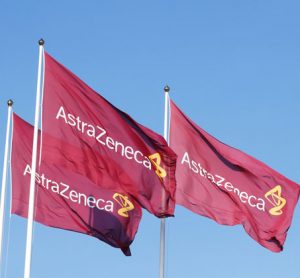AstraZeneca and Karolinska Institutet to create Integrated Translational Research Centre
Posted: 21 March 2013 | | No comments yet
The Centre will be set up to conduct preclinical and clinical studies…


AstraZeneca and the Swedish medical university Karolinska Institutet announced today their intention to create an Integrated Translational Research Centre for cardiovascular and metabolic disease and regenerative medicine located at Karolinska Institutet’s site in Stockholm, Sweden. The Centre will be set up to conduct preclinical and clinical studies aimed at advancing the understanding of cardiovascular and metabolic disease pathophysiology and assessing new drug targets for AstraZeneca’s two biotech units, AstraZeneca Innovative Medicines and Early Development (iMed) and MedImmune.
Building on the organisations’ longstanding collaboration, the Centre will initially run for a period of five years and will be made up of between 20 and 30 scientists, including a number of AstraZeneca scientists. In addition, AstraZeneca will contribute up to 20 million USD per annum, and Karolinska Institutet will contribute expertise and facilities. The Centre is expected to be operational by mid-2013.
Menelas Pangalos, Executive Vice President of the Innovative Medicines and Early Development biotech unit at AstraZeneca said: “Working side by side and in the same laboratories as scientists from Karolinska Institutet, we can combine AstraZeneca’s resources and drug discovery experience with the world-class research of Karolinska Institutet to dramatically accelerate our understanding of cardiometabolic diseases. Empowering world-class scientists to collaborate closely, with joint research goals, will speed our ability to translate ground-breaking research into the delivery of new medicines and advance AstraZeneca’s scientific leadership in cardiovascular and metabolic disease.”
Anders Hamsten, president of Karolinska Institutet said: “AstraZeneca is one of our most important partners. The creation of this research centre means great opportunities for excellent research and development of the healthcare sector. It will also strengthen the Stockholm region as a life science arena as well as the pharmaceutical industry in Sweden.”
Karolinska Institutet is a world centre for biomedical and translational science and has a long history of scientific collaboration with AstraZeneca. In the field of cardiovascular and metabolic disease a three-year research partnership has recently been established, focusing on advancements in cardiac regenerative therapy. This work and the new Integrated Translational Research Centre will also feed into a collaboration announced today between AstraZeneca and Moderna Therapeutics, focused on the discovery and development of pioneering messenger RNA therapeuticsTM.
Elsewhere, Karolinska Institutet and AstraZeneca are working together to identify novel radioligands and advance the field of Positron Emission Tomography (PET), a modern imaging technique that allows for non-invasive examination of the human brain. In 2012, AstraZeneca and Karolinska Institutet announced a three-year research agreement to deliver new imaging tools that can help transition molecules through AstraZeneca’s early research and development pipeline. The same year the parties created a Translational Sciences Centre to discover and deliver biomarkers for clinical use across AstraZeneca’s portfolio. Additionally in 2012, AstraZeneca committed to investing in joint research projects within the Science for Life Laboratories (SciLifeLab), a joint venture between four Swedish universities, including Karolinska Institutet. Supported by the Swedish government, SciLifeLab provides a national platform in Sweden for genomics, proteomics, metabolomics and bioimaging.




